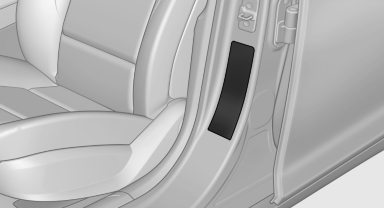Determining the load limit

Determining the load limit
1. Locate the following statement on your vehicle’s placard:
▷ The combined weight of occupants and
cargo should never exceed XXX kg or
YYY lbs. Otherwise, damage to the vehicle
and unstable driving situations may
result.
2. Determine the combined weight of the
driver and passengers that will be riding in
your vehicle.
3. Subtract the combined weight of the driver
and passengers from XXX kilograms or YYY
pounds.
4. The resulting figure equals the available
amount of cargo and luggage load capacity.
For example, if the YYY amount equals
1,000 lbs and there will be four 150 lbs passengers
in your vehicle, the amount of available
cargo and luggage load capacity is
400 lbs: 1,000 lbs minus 600 lbs = 400 lbs.
5. Determine the combined weight of luggage
and cargo being loaded on the vehicle. That
weight may not safely exceed the available
cargo and luggage load capacity calculated
in Step 4.
See also:
Daytime running lights
With the ignition switched on, the daytime running
lights light up in position 0, or
.
After the ignition is switched off, the parking
lamps light up in position .
Activating/deactivating
1. ...
Selecting the contact as a navigation
destination
1. Select the desired contact.
2. Select the address.
3. "Start guidance" or "Add as another
destination" ...
BMW 3-Series production at the company's home plant in Munich
Like each of its predecessors since 1975, the new BMW 3-Series will be built
at BMW Plant Munich. The company's home plant lies at the centre of the
sprawling Bavarian city and represents the hear ...
